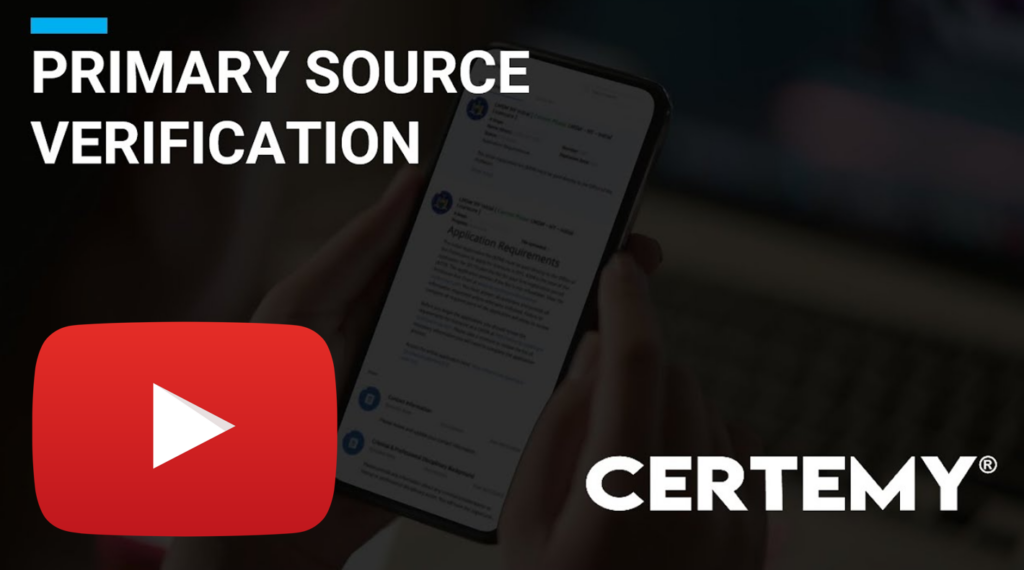
License Verification Tool | APRN – Advanced Practice Registered Nurse
Advanced Practice Registered Nurses (APRNs) are essential healthcare providers in the U.S., executing a variety of roles in the healthcare system, from diagnosing and managing illnesses to prescribing and monitoring medications. To ensure that APRNs are adequately credentialed to provide quality care, states and healthcare organizations must reliably verify their professional licenses and certifications. Primary source Verification is the gold standard for verifying APRN qualifications, but manually tracking and validating credentials can be time-consuming and an inefficient use of resources.
Fortunately, automated primary source verification tools have emerged to simplify the complex and labor-intensive process of validating APRN credentials. Gone are the days of tedious, manual verification of professional licenses and certifications; advanced primary source verification tools provide instant, accurate insights into the APRN workforce with reliable, cost-effective oversight. This article will discuss the importance of verifying APRN licenses and certifications, review the risks of non-Compliance with primary source verification, and provide an overview of best practices for primary source verification.Why Verify APRN Licenses and Certifications?Verifying APRN licensure and certification is essential for healthcare organizations to ensure their staff are qualified and legally permitted to treat patients and administer medications. Because the healthcare industry is highly regulated, APRN licensure and certification serve as legal protection for healthcare organizations, helping to limit their legal and financial risk. When healthcare organizations do not effectively manage their licensing compliance, they can incur fines, experience a loss of legal protection, and even lose Medicare and Medicaid funding.States also track and audit APRN credentialing to prevent unlicensed professionals from practicing within their borders. By relying on automated primary source verification tools to effectively manage license tracking, healthcare organizations can provide enhanced patient safety and improve staff utilization.The Risks of Non-Compliance with Primary Source VerificationIn addition to the legal risks of not verifying and maintaining APRN licenses and certifications, healthcare organizations can also experience a host of other undesirable consequences related to non-compliance. For example, health care organizations can suffer from poor optics during an audit or litigation, leading to additional regulatory attention and further financial penalties. Poor visibility and control of licensure records can also lead to operational inefficiencies when staff must manually track and verify credentials.Additionally, when manual processes are used to track and manage APRN licenses, there is an increased risk that credentials and disciplinary actions will be missed, allowing unqualified practitioners to providing patient care and medication.Best Practices for Primary Source VerificationTo ensure that your healthcare organization is in compliance with licensure laws and limits the financial and legal risks associated with non-compliance, using an automated primary source verification tool is essential. By leveraging a tool that provides complete visibility and control of licensing compliance, you can drastically reduce your operational costs and protect your organization from regulatory fines.When selecting a primary source verification tool, it is beneficial to look for features like real-time tracking of employee licenses and credentials in one system of record, pre-built workflows that are fully configurable, and automated license application processes. Additionally, be sure to prioritize tools that can effectively track and verify international licenses and credentials and provide you with the ability to monitor, track, and archive sanctions and other disciplinary actions.Using the right tool can drastically improve the accuracy, efficiency, and cost-effectiveness of software-driven primary source verification.Topics:

